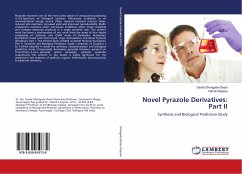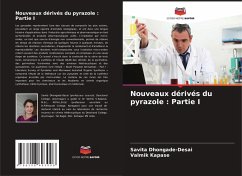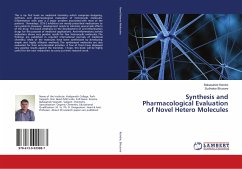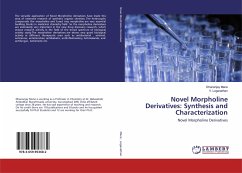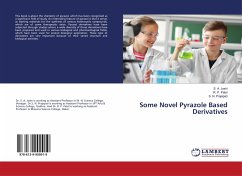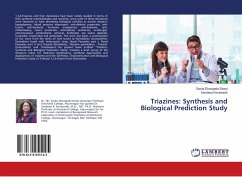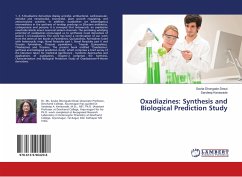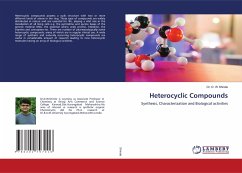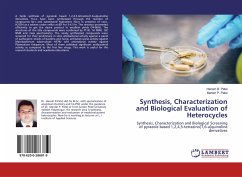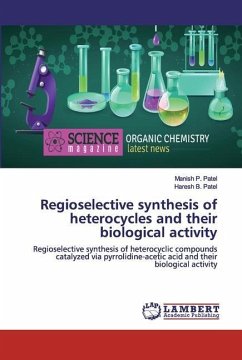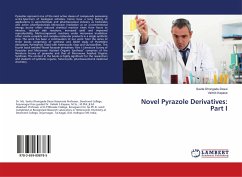
Novel Pyrazole Derivatives: Part I
Versandkostenfrei!
Versandfertig in 6-10 Tagen
24,99 €
inkl. MwSt.

PAYBACK Punkte
12 °P sammeln!
Pyrazoles represent one of the most active classes of compounds possessing wide Spectrum of biological activities, hence have a long history of applications in agrochemicals and pharmaceutical industry as herbicides and active pharmaceuticals. Microwave irradiation as an unconventional energy source offers reduced chemical reaction times from hours to minutes, reduced side reactions, increased yield and improved reproducibility. Multi-component reactions under microwave irradiation often create complete and complex molecular products in a single synthetic step. The work has been a continuation...
Pyrazoles represent one of the most active classes of compounds possessing wide Spectrum of biological activities, hence have a long history of applications in agrochemicals and pharmaceutical industry as herbicides and active pharmaceuticals. Microwave irradiation as an unconventional energy source offers reduced chemical reaction times from hours to minutes, reduced side reactions, increased yield and improved reproducibility. Multi-component reactions under microwave irradiation often create complete and complex molecular products in a single synthetic step. The work has been a continuation of our work from the series of three books comprising of synthesis and QSAR study of Pyrimidine derivatives, Pyrimidines fused with heterocyclic rings and Quinazolines. This fourth book entitled "Novel Pyrazole derivatives: Part I: Literature Survey of Pyrazoles and Microwave Assisted Organic Synthesis" comprises of the literature Survey of pyrazoles and that of Microwave Assisted Organic Synthesis. The content in the books is highly significant for the researchers and students of synthetic organic, heterocyclic, pharmaceutical & medicinal chemistry.



